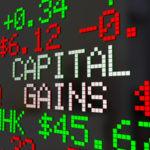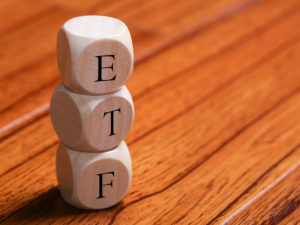My latest Financial Post column (on page FP8 of Friday’s paper) looks at how certain tax-efficient ETFs can provide investors with a measure of tax relief in their non-registered portfolios. You can find the full column online by clicking on the highlighted headline here: Friends with Benefits: How ETFS can help keep the taxman at bay.
By definition, investing in taxable (non-registered) accounts is inherently tax inefficient. Outside registered plans, fixed income is the most harshly taxed asset while deferred capital gains is most favorably taxed.
In between are dividends. As anyone who receives T-5 or T-3 slips at tax time knows, dividends create a yearly tax liability, although as Markham-based fee-for-service financial planner Ed Rempel observes, those with annual taxable income under $47,000 will pay little or not tax on Canadian dividends.
Foreign dividends are highly taxed like Canadian interest, but qualifying Canadian dividends generate the dividend tax credit. This eases the pain but retirees are often irked by the dividend “gross-up” rules, which can bump them into higher tax brackets and result in clawback of government benefits like Old Age Security.
Because interest is taxed at the highest marginal rate, like earned income, advisors recommend holding bonds, GICs and fixed-income funds inside RRSPs or TFSAs, while holding stocks outside. In the latter case, stocks held for deferred long-term capital are more attractive than dividends since you “include” only half the capital gains for tax purposes. Second, you only pay capital gains tax when you actually book or “crystalize” a gain. If you can let profits run you can defer capital gains tax indefinitely. You can also take the odd gain and if you structure things properly end up with no net capital gains tax if you can find offsetting capital losses in losing trades.
As financial planner Ed Rempel observes, “The lowest-taxed type of investment income is deferred capital gains.” See this piece by Rempel elaborating on this.
ETFs that transmute dividends into capital gains
Returning to the FP article, it looks at a handful of ETFs — mostly sold by Horizons ETFs Management (Canada) Inc. — that effectively transmute dividend income into capital gains. The most popular is a perennial MoneySense ETF All-star:the Horizons S&P/TSX 60 ETF (HXT). HXT has exposure to the 60 largest stocks in Canada although technically it doesn’t “own” the underlying stocks. It also hasa low Management Expense Ratio (MER) of 0.03%: normally it’s 0.07% but Horizons is extending a 0.04% fee rebate at until September 2018. Little wonder it has attracted almost $1.8 billion since its 2010 launch.
In addition to HXT, Horizons offers similar swap-based ETFs in domestic sectors like energy and financials, plus US ETFs tracking the S&P500 and Nasdaq indexes, international developed markets, and even a handful of US and Canadian fixed income ETFs that operate under the same principles.
Still, Rempel cautions that Investors should never let the tax tail wag the investment dog: “Always start with the investment decision and then look at tax-efficiency. A properly-diversified portfolio should be globally diversified. You can’t create a proper global portfolio with total return swap ETFs. The equity portion of your portfolio should be focused on tax-efficient global equity investing.”
Tax-efficient Fixed-income ETFs
Finally, the FP article concludes by mentioning a couple of Canadian fixed-income ETFs that provide the potential for better after-tax returns for non-registered fixed-income investors: the BMO Discount Bond Index ETF (ZDB) and the First Asset 1-5 Year Laddered Government Strip Bond Index ETF (BXF).



